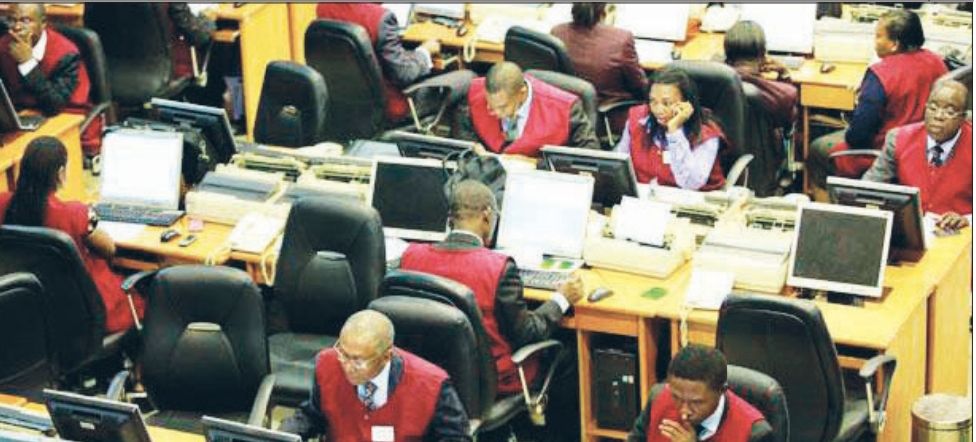
As Nigeria marches toward its goal of becoming a $1 trillion economy by 2030, the intricacies of banking recapitalisation and investor engagement have taken center stage.
In a nation where the financial ecosystem is both the bedrock of economic ambitions and a crucible of challenges, the prolonged delay in share allotments by the Central Bank of Nigeria (CBN) has sparked widespread concern.
At the 2024 Capital Markets Correspondents Association of Nigeria (CAMCAN) Workshop, industry leaders convened to dissect the theme, “Banks’ Recapitalisation: Bridging the Gap Between Investors and Issuers in the Nigerian Capital Market.”
The discourse illuminated a pressing issue: the need to harmonise regulatory oversight with market efficiency to foster trust and unlock the full potential of the Nigerian capital market.
Erosion of confidence
The Nigerian Exchange Limited (NGX) has become a platform for banks to raise muchneeded capital through public offers and rights issues.
In 2024 alone, major financial institutions like Guaranty Trust Holding Company Plc (GTCO), Access Holdings Plc, and Zenith Bank Plc collectively raised over N1.27 trillion.
However, the failure to allot shares to investors months after these offers closed has sparked discontent. “While it is crucial for the CBN to ensure the legitimacy of invested funds, the excessive duration of these verifications—some of which remain unresolved nearly four months after offers closed—has weakened investor confidence,” stated Johnson Chukwu, Group Managing Director of Cowry Asset Management Limited.
The delay, Chukwu emphasised, is not merely an administrative hiccup but a systemic inefficiency that disrupts capital reinvestment cycles.
Investors, especially those impacted by oversubscription, find themselves trapped in a limbo where potential gains from other investment opportunities are forfeited.
Bureaucratic bottlenecks
Chukwu, the keynote speaker at the conference, and other participants at the CAMCAN workshop advocated for technology-driven solutions to address these persistent delays.
The CBN’s Bank Verification Number (BVN) system and existing IT infrastructure, they argued, could be leveraged to accelerate the verification of investor funds and facilitate timely allotments.
“In an era where technology drives efficiency globally, the CBN must adopt advanced digital tools to streamline verification and share allocation processes,” Chukwu asserted.
He also criticised the stringent documentation requirements imposed on corporate investors, describing them as unnecessary barriers that deter broader participation.
By utilising existing banking data and embracing digitisation, the CBN can enhance transparency and ease for all stakeholders.
Market sentiment and economic growth
The delays have broader implications beyond investor frustration. Panelists, including Umaru Kwairanga, Chairman of the Nigerian Exchange (NGX) Group, warned of the cascading effects on market sentiment.
“Investors are disheartened when they see rising share prices but remain unable to capitalise due to unresolved allotment processes,” Kwairanga lamented.
The capital market, which raised nearly N2 trillion in 2024, is a linchpin of Nigeria’s economic strategy. However, persistent inefficiencies threaten to undermine
Recapitalisation is not merely an end but a means to an economic transformation
investor confidence and stymie the momentum required to sustain the market’s role in driving economic growth.
Reform
The Securities and Exchange Commission (SEC) underscored the strategic importance of banking recapitalisation as a catalyst for broader economic development.
Dr. Emomotimi Agama, Director General of the SEC, argued that aligning regulatory frameworks with market realities was crucial for fostering resilience in the banking sector.
“The robustness of the banking sector is vital to Nigeria’s economic growth,” Agama noted through a representative. “Timely share allotments and investor-friendly policies are imperative to maintaining investor confidence and ensuring the capital market’s efficiency,” he added.
Stakeholders at the workshop called for a comprehensive review of existing regulatory practices. This includes revisiting pension fund investment caps, expanding the range of financial instruments available, and adopting globally recognised governance standards.
Innovations
Technology emerged as the cornerstone of proposed reforms. Blockchain, artificial intelligence, and predictive analytics were identified as tools that could revolutionise the market by enhancing transparency and security.
SEC revealed plans to integrate blockchain-based solutions into its regulatory processes, signaling a forwardthinking approach to innovation. Additionally, financial literacy initiatives were emphasized as essential to democratising access to investment opportunities.
Panelists proposed partnerships between market operators and fintech firms to deliver low-cost, user-friendly investment platforms, particularly targeting underserved demographics.
Inclusion and sustainability
Amid discussions of challenges, participants celebrated milestones that demonstrate the potential of Nigeria’s capital market. Oversubscription of recapitalisation offers in 2024 serves as a testament to the market’s resilience.
Furthermore, digital platforms like NGX Invest and X-Rails have streamlined access to public offers, making participation more inclusive. Dr. Kwairanga highlighted the integration of Environmental, Social, and Governance (ESG) principles as a magnet for global investors.
“ESG frameworks are not just a trend; they are an indispensable strategy for attracting sustainable investments,” he said.
Collaboration
As the CAMCAN workshop concluded, one sentiment prevailed: collaboration among regulators, issuers, and investors is essential to bridging the divide in Nigeria’s capital market.
“Recapitalisation is not merely an end but a means to an economic transformation,” Kwairanga declared.
By addressing inefficiencies, enhancing transparency, and embracing innovation, Nigeria can position its capital market as a beacon of trust and opportunity.
For a nation with aspirations of economic grandeur, this is more than a strategic imperative—it is a foundational necessity.
In the evolving narrative of Nigeria’s financial landscape, the journey toward a resilient and inclusive capital market is both a challenge and an opportunity.
As stakeholders work to align their actions with the nation’s ambitions, the success of recapitalisation efforts will serve as a litmus test for Nigeria’s readiness to achieve its economic potential.
Please follow and like us:


